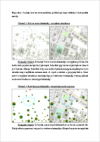Publications
Filter publications
Or use fulltext search
Publishing the crime data at the level of street segments - a proposal of solution for cities in Czechia
The paper reviews recent theoretical discussions on education for sustainable development and competence based teaching, and relates them to the international policy processes of the Sustainable Development Goals implementation where ‘the knowledge and skills needed to promote sustainable development’ are expressed in the SDG 4.7.
This paper investigates the role of civic culture and other political factors in support for democracy in the Czech Republic during the decade following EU accession. The goal is to assess the validity of civic virtue theory and to compare the impact of these factors on affective legitimacy using the ISSP Citizenship modules 2004 and 2014.
Drawing on fieldwork in the postsocialist Czech Republic, we explore the transformative processes of biomedicalization, both within and in relation to complementary and alternative medicine (CAM). We argue that it would be simplistic to understand evidence of these processes in CAM as a sign that CAM has fallen prey to biomedicine. Instead, we show how particular CAM practices play a groundbreaking role in shaping developments in contemporary health care.
National pride is a group-based and sometimes collective emotion people feel towards their nation-state. It is often measured by the general national pride item in cross-national surveys, and Czechs belong to those nations that express low levels of general national pride in comparison with other nations. It is currently under discussion how much general national pride is influenced by social desirability and how much by specific reasons.
Subjective well-being is usually studied with respect to marital and occupational status, income or subjective health. Conversely, research examining the relationship between this phenomenon and crime-related factors is still relatively limited. This study therefore aims to extend the current knowledge in this area.
Kaplanství je v Česku neprobádaná a stále se rozvíjející role, která v kontextu nízké české religiozity produkuje řadu nejistot a napětí. Kaplani, kteří působí v armádě, věznicích či nemocnicích, čelí několika zdrojům nejistot: svou pozici musí neustále vyjednávat s kolegy i nadřízenými; musejí pracovat na sebeprezentaci před klienty a získávat si jejich důvěru a zároveň nemají velké možnosti sdílené a supervize.
Kapitola srovnává přechod od autoritativního režimu v Československu k pluralitní demokracii ve dvou (později nezávislých) státech - České republice a Slovenské republice. Přitom je zvláštní pozornost věnována fungování demokracie v rámci konceptu ukotvené demokracie a je srovnáván vliv interních a externích faktorů.
Respondent-driven sampling (RDS) is a survey method for hidden populations and, as such, it offers a suitable approach for sampling the homeless. Surprisingly, the practical use of RDS in surveying homeless populations has only sporadically been described in the professional literature so far, and the specifics of using RDS for sampling this group have not been reflected in depth.





Newsletter
Facebook
Twitter